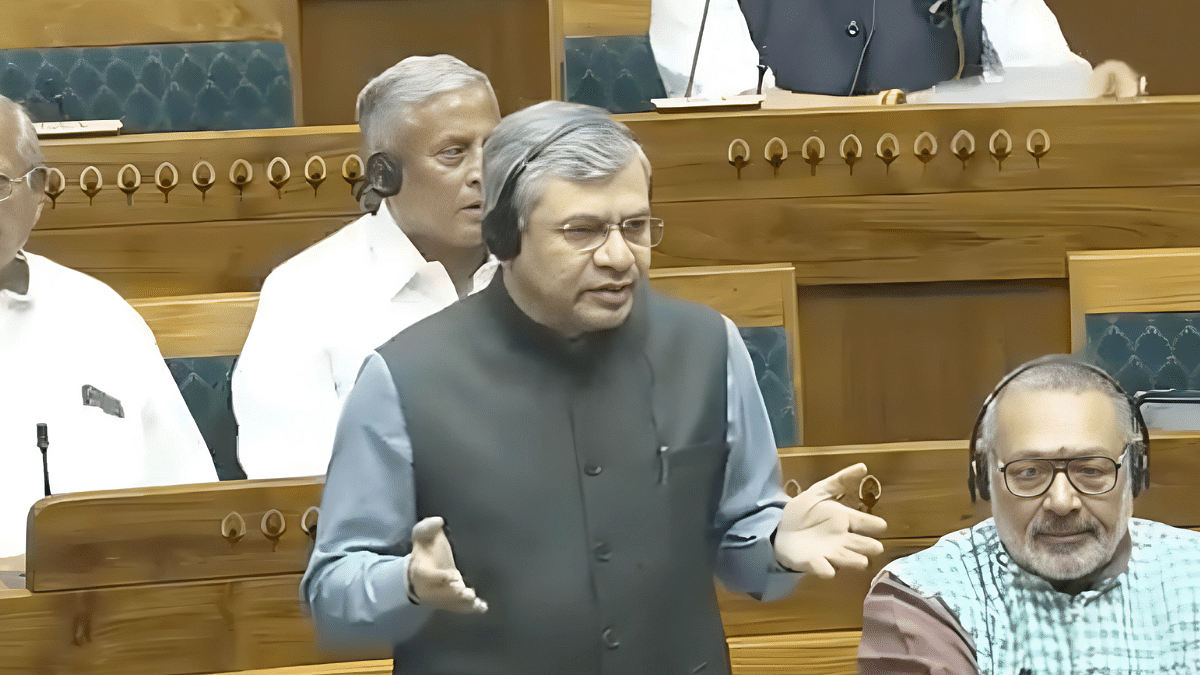New Delhi: Union Minister for Information and Broadcasting Ashwini Vaishnaw Wednesday said there was a need for more stringent laws to curb “vulgar” content on social media, and requested that a Parliamentary Standing Committee look into the issue as well.
Replying to a question by MP Arun Govil, Vaishnaw admitted in Lok Sabha that the process of conducting editorial checks on content before publishing has ceased to exist on online platforms. “We are living in the era of social media and OTT platforms. However, the democratic institutions and traditional forms of the press that once relied on editorial checks to ensure accountability and correctness of content, have seen these checks diminish over time.”
He added: “In the absence of such editorial oversight… social media is a medium for freedom of press but it has also become a space for uncontrolled expression, which often includes vulgar content. There is a need to make current laws more stringent. I would request consensus on this.”
Govil had inquired about laws to check vulgar content on social media, seeking details of existing mechanisms to check telecast of sex-related content through social media platforms illegally. He wanted to know if the government wanted to make existing laws more stringent, highlighting that these were not much effective to stop misuse of these platforms.
“The respected MP has raised an important issue,” Vaishnaw said in his reply, adding that there were distinct cultural differences between India and the geographies where these platforms originated.
“The cultural sensitivities of India vastly differ from those of the regions where these platforms were created. This makes it imperative for India to make existing laws stricter and he urged everyone to come to a consensus on this matter,” he further said, adding that such debates are being held in almost every country in the world. “There should be societal consensus on it, along with stricter laws to address this challenge.”
In his written reply to these questions, the minister said the government had notified the Information Technology (Intermediary Guidelines and Digital Media Ethics Code) Rules, 2021 (IT Rules, 2021) on 25 February, 2021 under the Information Technology Act, 2000.
He said these rules provided for a code of ethics for publishers of online curated content (OTT platforms) which require the publishers to not transmit any content that was prohibited by law.
The code also demanded OTT platforms to put in place adequate safeguards for restricting age-inappropriate content for children.
Further, in March this year, the Ministry of Information and Broadcasting blocked 18 OTT platforms for publishing obscene and vulgar content under the provisions of section 79(3)(b) of IT Act, 2000.
“So far, as the content on intermediary platforms like YouTube, Facebook, etc. is concerned, IT Rules, 2021 cast obligation on such platforms to make reasonable efforts by itself and to cause the user of their computer resource to not host, display, upload, modify, publish, transmit, etc. knowingly and intentionally any information which is obscene, pornographic, paedophilic, invasive of another’s privacy, including bodily privacy, insulting or harassing on the basis of gender, racially or ethnically objectionable, or that is harmful to child,” Vaishnaw said.
(Edited by Tikli Basu)
Also Read: ‘One Nation One Subscription’: All about Modi govt’s new scheme that promises to be India’s JSTOR

